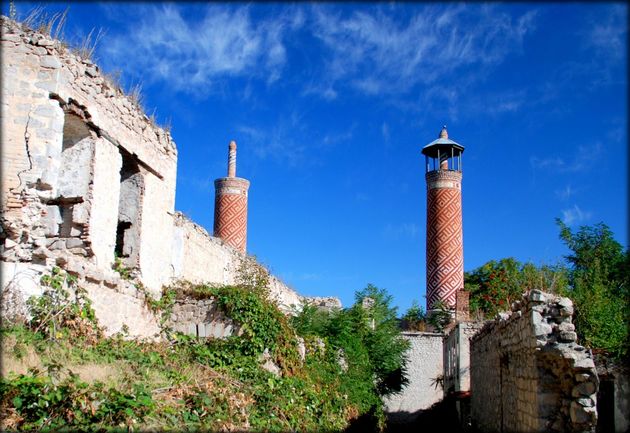On October 29, the leader of Nagorno Karabakh, Arayik Harutyunyan, issued an ominous warning that Azerbaijani troops were within 5 kilometers of the city of Shushi. He then appealed to all residents of Nagorno Karabakh to join the fight to hold the city.
As Matthew Bryza, former US diplomat, including the US ambassador to Azerbaijan, deputy assistant secretary of state for European and Eurasian affairs, writes in the article Armenia and Azerbaijan should seize chance for peace for Atlantic Council, known to Azerbaijanis as Shusha, this city within Nagorno Karabakh is of great importance to both sides. Militarily, it sits atop commanding heights above Nagorno Karabakh’s capital, Stepanakert (or Khankendi for Azerbaijanis). Whoever controls Shusha controls the “Lachin Corridor,” the lifeline linking Armenia to Stepanakert via the occupied Azerbaijani district of Lachin.
During the past month, Azerbaijan’s army has been decimating Armenian forces. Initially, Azerbaijan relied on precision drone strikes (using drones purchased from Turkey and Israel) to destroy Armenia’s high-value military assets (e.g., air defenses, tanks, and artillery) and regain its districts of Fuzuli and Jabrayil, which, like five others that surround Nagorno Karabakh, had been occupied by Armenia since the first Karabakh war. Azerbaijani forces then achieved a military breakthrough along the border with Iran about two weeks ago. Azerbaijan subsequently shifted to a combined arms operation that has pushed northward, regaining its regions of Zenglian and Gubadli, and now pressing into Lachin and toward Shusha.
Azerbaijani President Ilham Aliyev, however, has consistently proposed more restrained goals, namely to:
-Regain political control of Azerbaijan’s seven districts that surround Nagorno Karabakh;
-Facilitate the return of displaced Azerbaijanis to their former homes in Nagorno Karabakh and its seven surrounding Azerbaijani reasons;
-Rebuild these regained territories; and
-Resume negotiations with Armenia about the future legal status of Nagorno Karabakh, with the region’s Armenian residents free to remain in their homes after their former Azerbaijani neighbors return.
Convincing Armenians to remain in Nagorno Karabakh will be difficult. They fear for their physical security and loathe being forced to become citizens of Azerbaijan if Nagorno Karabakh returns to Baku’s control. In an October 29 interview to Russia’s Interfax News Agency, however, President Aliyev suggested a way forward. On security, Aliyev announced that Azerbaijan is “…ready to stop all military operations immediately” if Armenian Prime Minister Nikol Pashinyan commits to withdraw all Armenian troops from the conflict zone. On citizenship rights, Aliyev reiterated his call for negotiations to end the conflict on the basis of the so-called “Basic Principles.” First tabled in November 2007 by the Organization for Security and Cooperation in Europe’s Minsk Group, the Basic Principles allow inter alia for Nagorno Karabakh’s Armenian residents to claim they are not citizens of Azerbaijan because they live in a region whose legal status is ambiguous.
Pashinyan will resist accepting these conditions. He has already declared “There is no diplomatic solution” to the war over Nagorno Karabakh and publicly abandoned the Basic Principles and their fundamental formula of “land for peace,” instead embracing a formulation of “new territories for new wars.” Pashinyan needs to stop the fighting by committing to withdraw all Armenian troops and proceed with peace talks in line with the Basic Principles. But by doing so, Pashinyan would save many Armenian soldiers’ lives and provide Nagorno Karabakh’s Armenian residents a chance for a peaceful and prosperous future.






